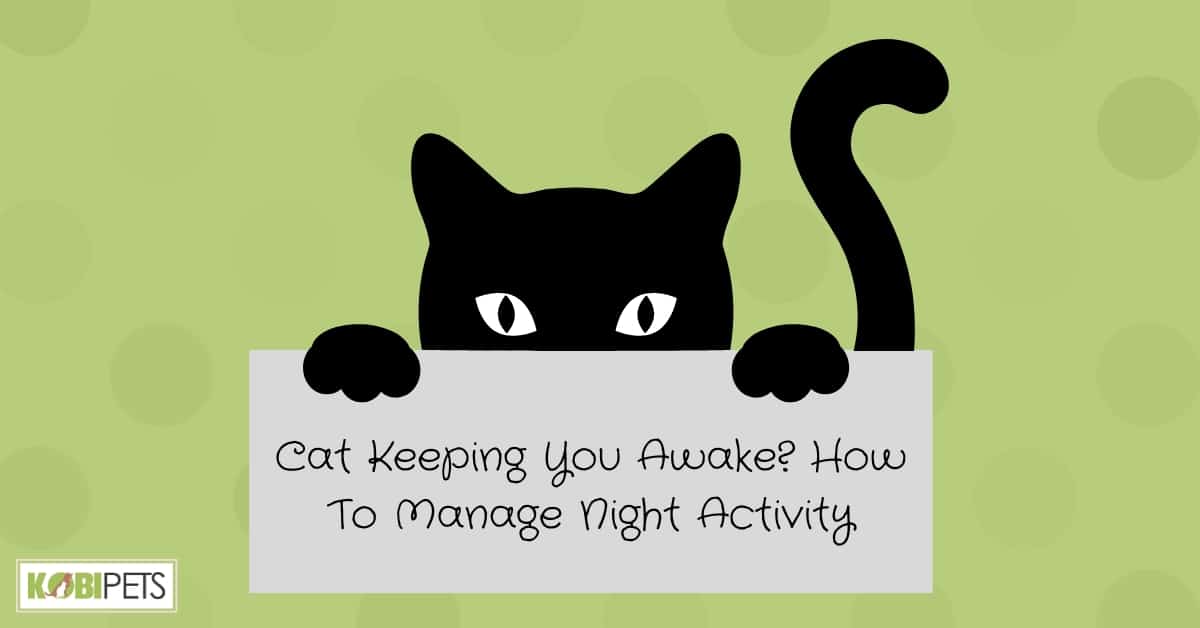
Cats are naturally nocturnal animals, and their instincts drive them to be most active during the night. They may race around the house, play with toys, or meow for attention, which can disturb your sleep and make it hard for you to get the rest you need.
In this blog post, we will discuss natural instincts that cause cats to be nocturnal and offer tips for managing cats’ night-time activity. We will also explain what to avoid when dealing with this issue so that you can get the most out of your restful nights.
Why Do Cats Get Active at Night?
Cats are nocturnal animals by nature and they often become active around sunset, when their owners and other humans start to wind down. Cats have an amazing vision in the dark, which makes it easier for them to find prey or hunt for food during the evening hours.
Additionally, cats have also been known to migrate toward better resources once night falls, such as finding a mate or new territory free from competition or predators. Of course, when cats feel asfe indoors and come into contact with humans throughout the day, their activity levels at night are likely to be more subdued.
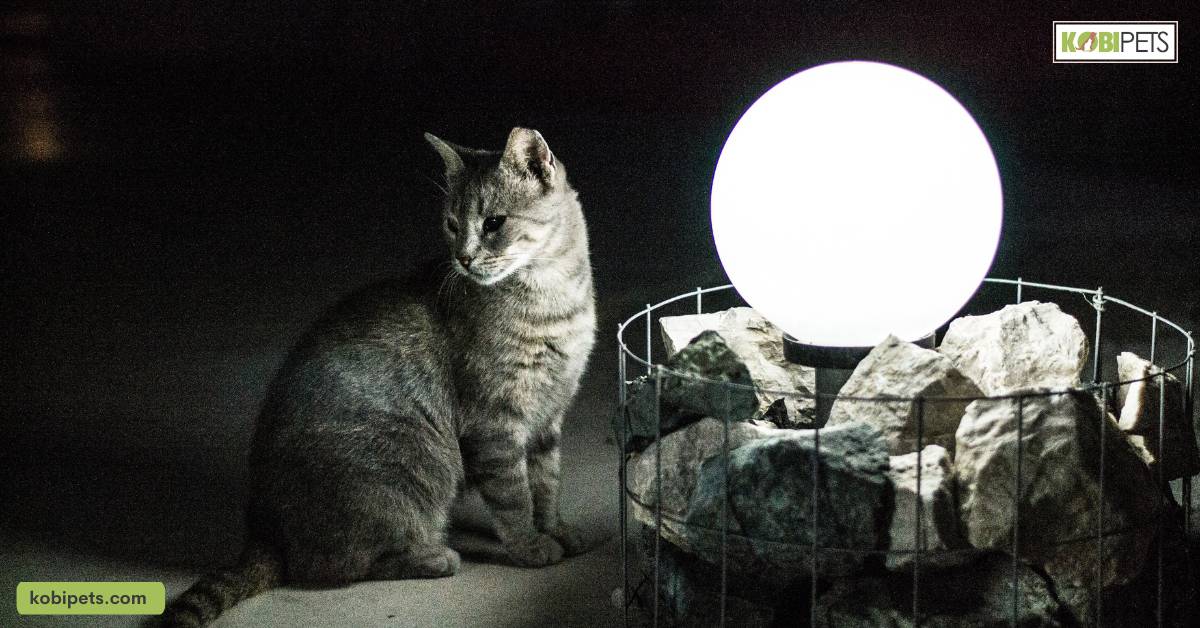
Natural Instincts of Cats
The natural instincts of cats are fascinating and have been studied extensively by behaviorists. In the wild, cats hunt during dusk and dawn when the visibility is best for them and the prey is most active. Cats also actively groom themselves to keep clean and well-kept which shows a sense of pride in their appearance.
Most commonly, cats spend their day looking for food, lounging around in warm patches of sunlight, and engaging in playtime with other cats or toy objects. They tend to sleep for about 15 hours a day to conserve energy for when they awaken to hunt.
The ability to adapt quickly to new environments is something that cats possess in order to survive. All these behavioral traits are a direct result of their innate evolutionary abilities which have been passed down through generations over thousands of years.
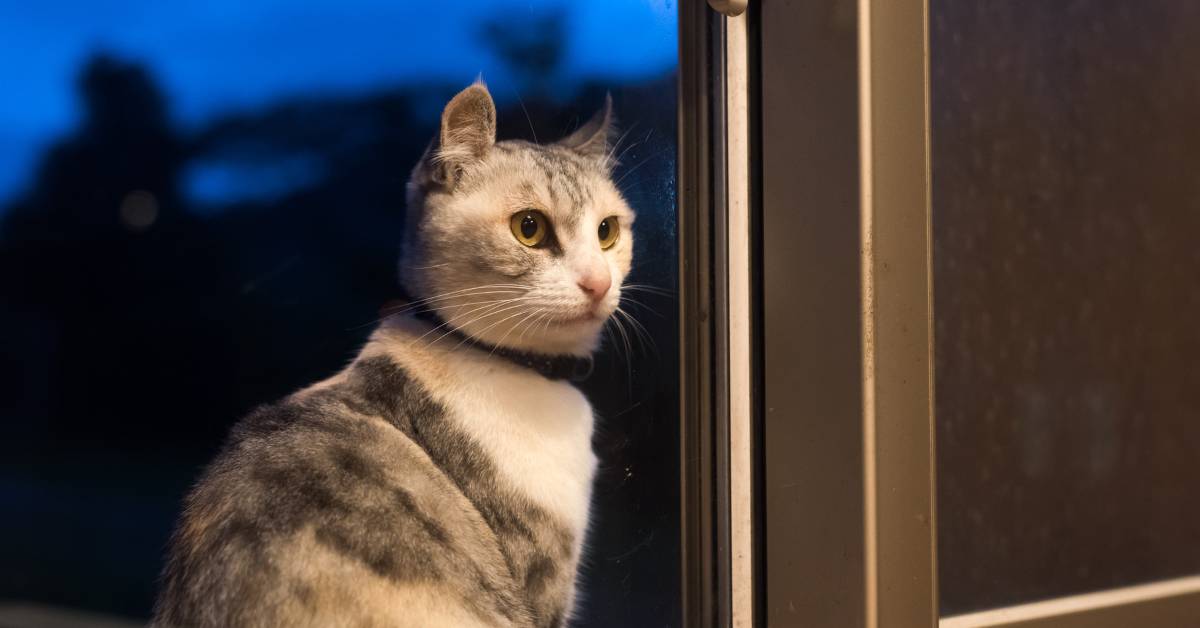
Tips to Manage Cat’s Night-Time Activity
Are your cat’s night-time antics keeping you up? You’re not alone. Many pet owners struggle with their cats’ active nights, but luckily, there are tricks of the trade to help manage these behaviors.
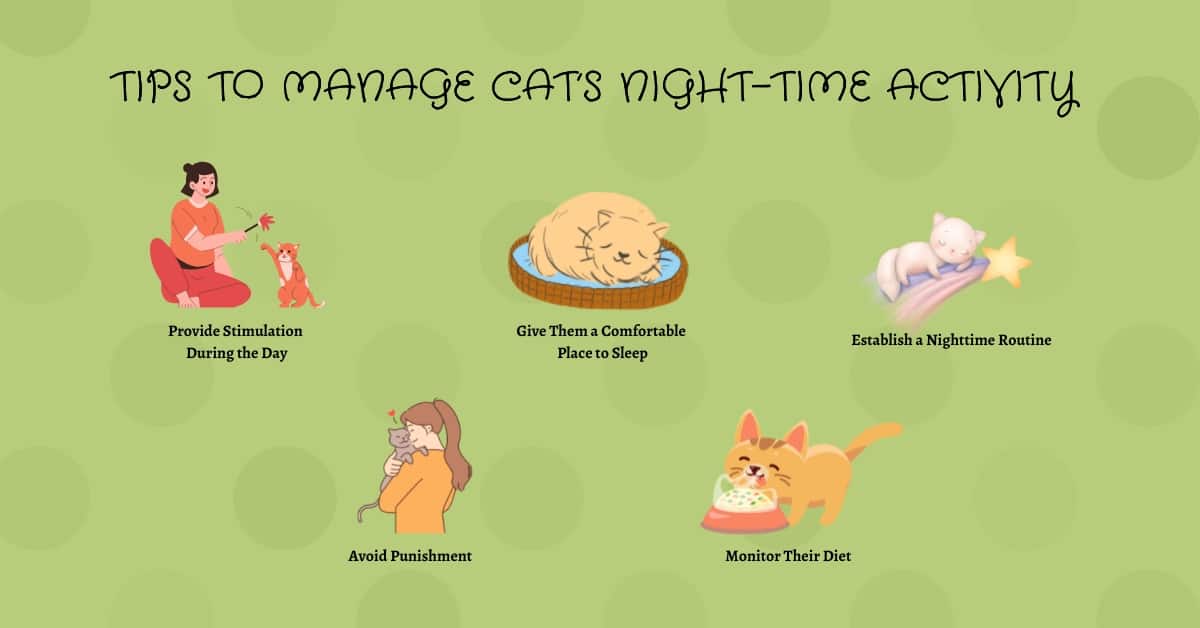
Tips to Manage Cat’s Night-Time Activity
1. Provide Stimulation During the Day
Cats are naturally active during the night, but they can be encouraged to be more active during the day if there’s plenty of stimulation in their environment. Provide a variety of toys like balls and feathers for them to play with or even invest in an interactive toy that will keep them entertained all day long.
2. Establish a Nighttime Routine
Creating a nighttime routine for your cat can help them to become more aware of when it’s time to settle down for the night. Try giving them a portion of their food, offering calming treats, or playing with them in the evening before bed. This will signal to them that it’s time to go to sleep and give them some peace and quiet.
3. Give Them a Comfortable Place to Sleep
Make sure that your cat has a comfortable place to sleep for the night, such as a cushioned bed or blanket. This will help them feel safe and secure during the hours when they should be getting rest instead of running around.
4. Avoid Punishment
Punishing your cat for being active at night is not the best solution as it can lead to further behavioral problems down the road. Instead, try using positive reinforcement techniques such as giving them treats when they behave properly or providing calm and soothing petting sessions whenever possible.
5. Monitor Their Diet
Cats’ diet can also have an effect on their behavior, so make sure that they are eating the right kind of food and getting enough nutrients. Avoid feeding them too late in the evening and opt for high-quality foods that will keep them energized throughout the day.
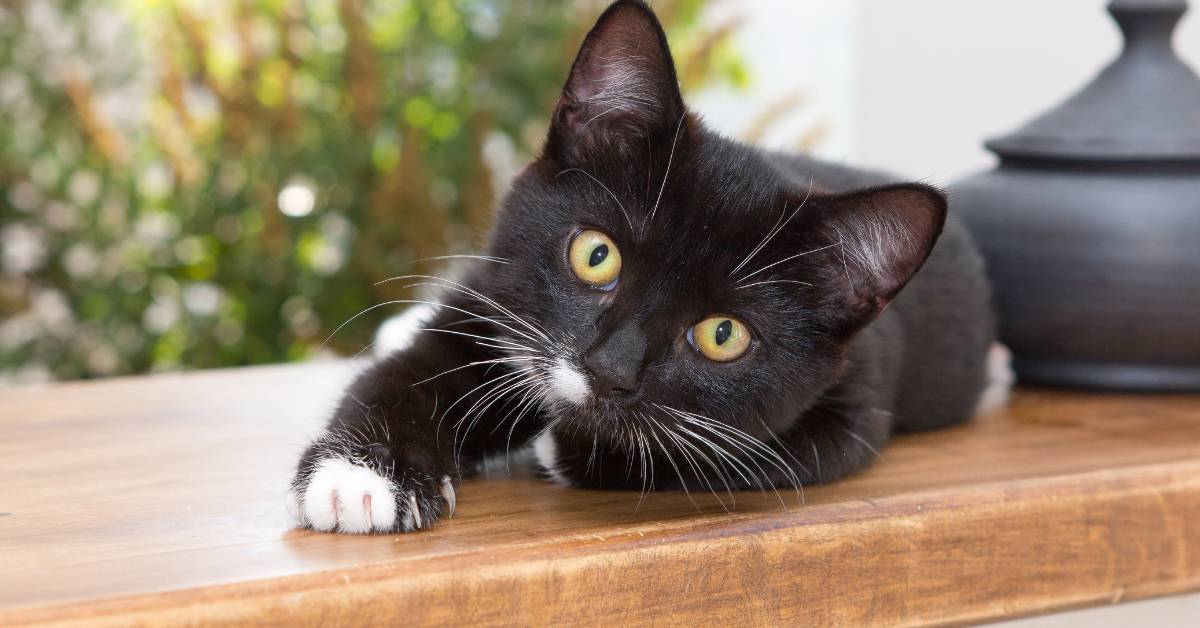
What to Avoid
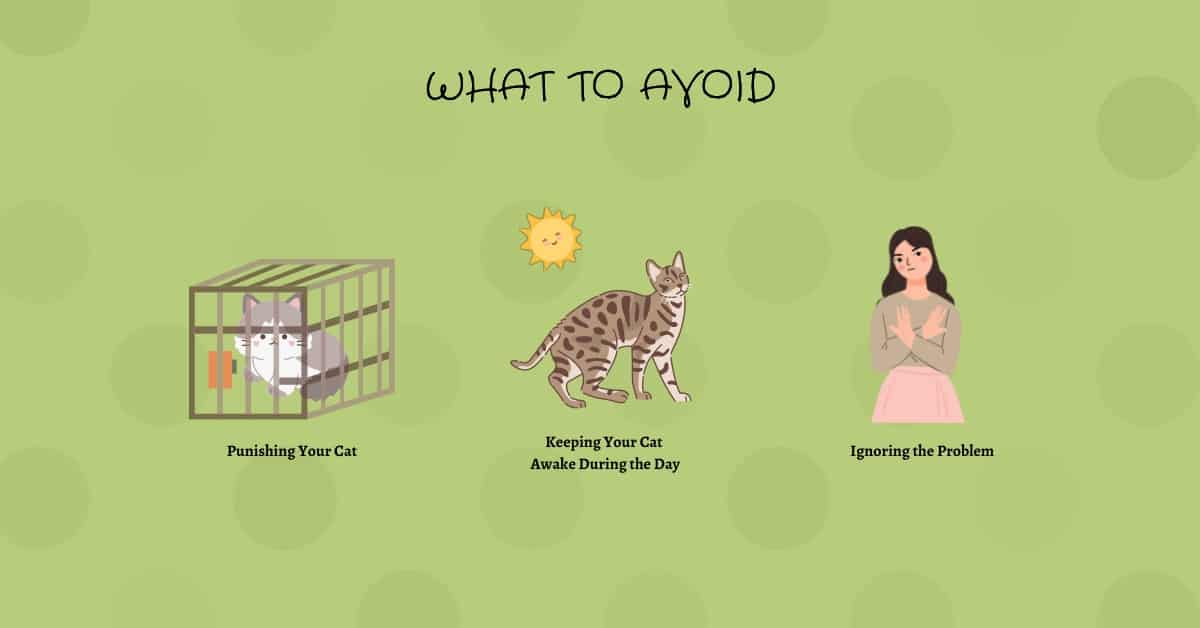
What to Avoid
Punishing Your Cat
When managing your cat’s nighttime activity, it is important to understand that punishing them for simply being active at night is not the solution. Most felines are naturally nocturnal creatures and trying to change that behavior can be a difficult and time-consuming endeavor.
Instead of punishing them, creating routines or providing activities to keep their energy focused throughout the day can lead to more restful nights for all. Additionally, making sure they have plenty of places to hide when they feel threatened in the evening may help reduce disruptive patrolling or vocalizing at night.
Understanding your pet’s specific habits and behavior patterns can make a huge difference in helping to manage their nighttime activity while avoiding punishments that will only cause additional stress or frustration.
Keeping Your Cat Awake During the Day
Ensuring that thorough cat owners keep their cats awake during daytime hours is paramount for a healthy lifestyle. Allowing your pet to sleep during the day, and instead become more active at night, can result in an irregular sleeping pattern that can be difficult to reverse.
Furthermore, if your cat is awake and restless at night, it can lead to pacing, vocalization, and other activities that may disrupt sleep. There are a few ways to help adjust your cat’s sleeping pattern and make sure they get adequate rest, like providing them with stimulating toys or engaging them in interactive playtime prior to bedtime.
Additionally, avoiding things like late-night snacks as well as providing minimal noise and light during the evening should also be taken into consideration. With some effort on your part, you can ensure that your kitty will spend most of their daytimes wide awake!
Ignoring the Problem
Proper care of your cat’s nightly activities is key to maintaining a healthy and happy pet. However, ignoring the problem can lead to issues like damage to furniture, stress-related health issues, or even repetitive vocalization and socialization with outside cats.
When managing your cat’s routines at night, be sure to find ways to give them safe access within the home if they have a tendency to roam about. Utilizing cat-proof gates, playpens, or kitty doors can help keep your cats safe when you cannot watch over them all evening.
Additionally, providing interactive toys such as boxes with treats or ping pong balls in an enclosed room offers an activity that will stimulate their curiosity without leaving the safety of their own home.

In Conclusion
Despite the fact that cats are naturally nocturnal animals and their instincts drive them to be most active during the night, there are various steps you can take to manage your cat’s night-time activity. This includes providing stimulation during the day, establishing a nighttime routine for your cat, giving them a comfortable place to sleep, avoiding punishment, and monitoring their diet.
Additionally, with the right tools and techniques, you can ensure that your cat is awake during the day and gets enough rest at night. With some effort on your part, you can help keep your pet healthy and happy while also getting a good night’s sleep!






